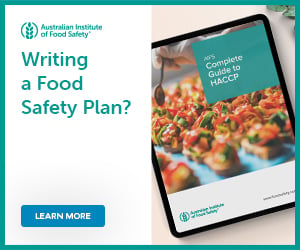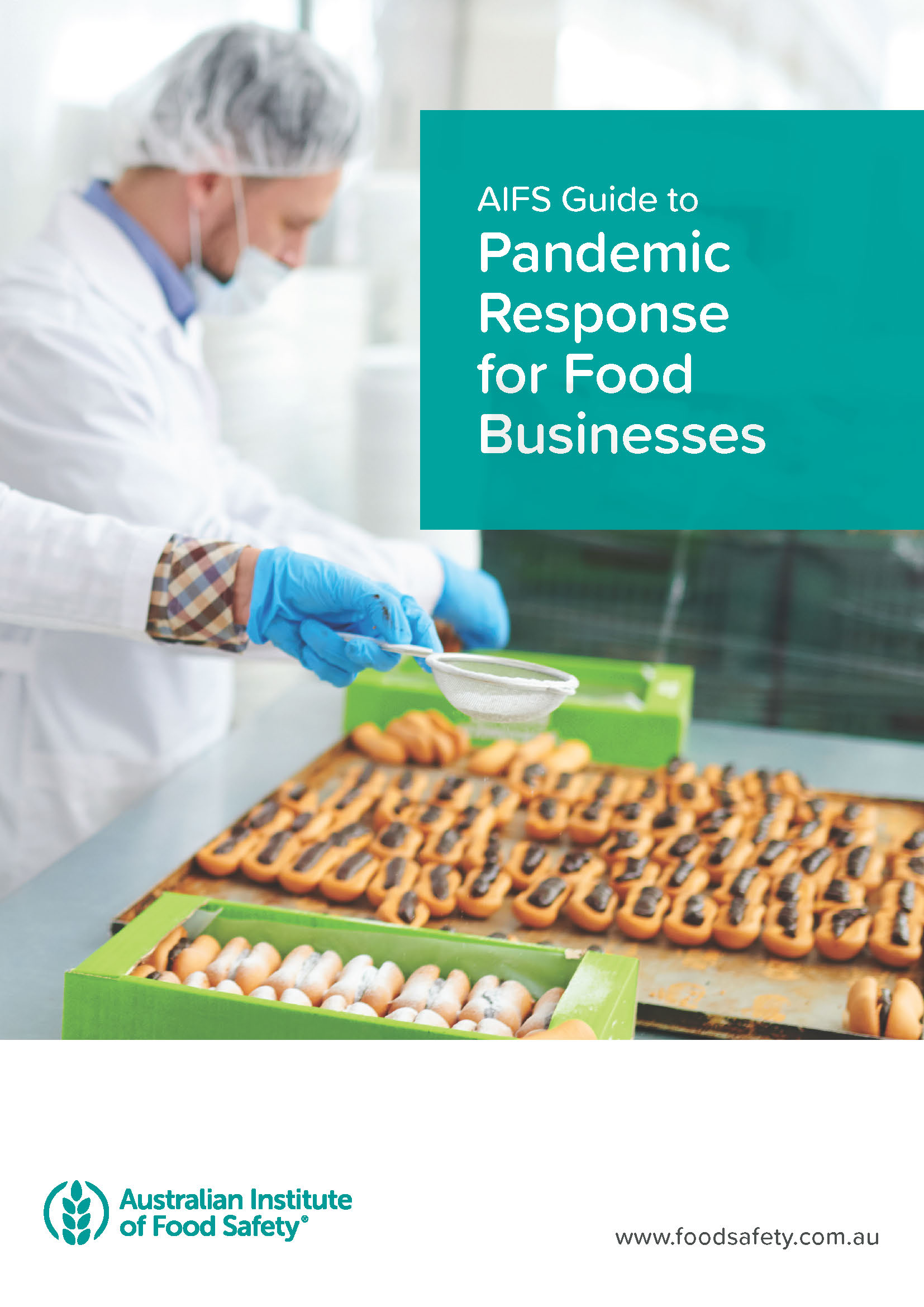
The food industry plays a vital role in the daily lives of millions of people across the globe. From transportation and distribution to grocery chains and restaurants, the general public is reliant on the food industry to keep their families fed and healthy. This industry is not immune to the effects of global influences, such as food-borne illness outbreaks, food supply chain shortages and global pandemics. The new coronavirus and the resulting COVID-19 pandemic are beginning to have drastic effects on the food industry as a whole.
Introduction
The food industry plays a vital role in the daily lives of millions of people across the globe. From transportation and distribution to grocery chains and restaurants, the general public is reliant on the food industry to keep their families fed and healthy. This industry is not immune to the effects of global influences, such as food-borne illness outbreaks, food supply chain shortages and global pandemics. The new coronavirus and the resulting COVID-19 pandemic are beginning to have drastic effects on the food industry as a whole.
WHAT ARE THE EFFECTS OF THE COVID-19 PANDEMIC?
We are now starting to see how the spread of COVID-19 is affecting food businesses, particularly those that serve and interact with the general public, such as restaurants, fast food chains and grocery stores. The results are two-fold: First, there is a critical need for all food workers within a food business to uphold all food safety standards within the business (personal hygiene, cleaning and sanitizing, etc.). Not only do these standards need to be maintained, they now need to be updated to exceed previous standards in order to prevent the spread of COVID-19. Secondly, the general public must be made aware of how each food business is working to prevent the spread of COVID-19 within their establishment. This not only arms the public with important information, it helps to ease the drastic economic effects that are being felt throughout the food industry due to a decrease in customers.
HOW THIS GUIDE CAN HELP YOU
The Australian Institute of Food Safety has prepared this guide to help businesses in the food industry navigate the COVID-19 pandemic and prevent the spread of COVID-19 in their premises and within their communities. This package includes:
- a COVID-19 Illness Decision Chart, to help staff know when not to come to work
- a Suspected Case at Work Form, to be filled out if an employee begins displaying symptoms at work
- a COVID-19 Symptoms Alert Poster, to help staff identify if they are experiencing symptoms
- a Hand Washing Poster, to remind employees of the proper hand washing technique
Recommended Actions for Business Continuity
DECIDE ON A COVID-19 PREPAREDNESS DIRECTOR FOR YOUR BUSINESS
This person will be responsible for overseeing and ensuring that all necessary steps are taken during the COVID-19 pandemic. This person will also delegate responsibilities to other qualified members of staff as needed.
ENSURE FOOD SAFETY AND HYGIENE STANDARDS ARE BEING EXCEEDED
It is vital that all staff continue to follow — and exceed — the proper protocols for personal hygiene, such as hand washing and the etiquette for coughing and sneezing. New protocols should also be put in place to clean and sanitize items more frequently, including items that are normally cleaned but not sanitised (salt and pepper shakers, menus, credit card machines, etc.).
TAKE CARE OF YOUR STAFF
It is imperative that all food workers in the business are educated on the symptoms of COVID-19 and what to do if they begin to feel ill on the premises. All staff should understand when they should not come into work and when they should self-quarantine at home. In the event that several employees do not report to work due to COVID-19, decide on how you will re-allocate the staff that is still working in order to ensure business can continue as much as possible.
CONDUCT A FINANCIAL ANALYSIS FOR YOUR FOOD BUSINESS
This financial analysis will determine what functions of the business are essential and non-essential during the COVID-19 outbreak. You should also determine what is the minimum amount of functionality needed in order to maintain the business at an acceptable level. Also take into consideration how long your business could be shut down before you would begin to suffer from severe financial impact.
BRAINSTORM STRATEGIES TO MAINTAIN OPERATIONS
In order to address any shortage of employees due to illness or quarantine, or lack of supplies due to order delays, consider shortening your hours of operation. While this might not seem ideal, this allows you to still operate with the staff and supplies that you do have.
SHIFT YOUR BUSINESS OPERATIONS IN ORDER TO CONTINUE SERVING CUSTOMERS
This can include switching to home deliveries or increasing your take-out options. You can also explore your options for creating a quick app that your customers can use to order their food rather than coming to your premises physically or partner with an online food ordering and delivery platform like Uber Eats or DoorDash.
TAKE STOCK OF YOUR SUPPLIES AND SUPPLIERS
Now is the time to identify which supplies and products are your priorities and take action to maintain a good stock of those items. It is also important to contact all of your suppliers to confirm if they will be able to fill orders as usual, and if not, what the anticipated waiting time will be.
KEEP COMMUNICATION OPEN
All of your staff need to be made aware of any changes to the business operations that will affect them directly. Be sure to create an environment where staff are comfortable asking questions and informing management if they suspect they may be having symptoms of COVID-19. Also, with drastic changes being made to the operations of many food businesses, it can be difficult to maintain efficient communication with all staff at all times. Ensure that your contact information for all staff is up-to-date so that they can be communicated with even if they are at home in quarantine.
COVID-19 Symptoms Alert
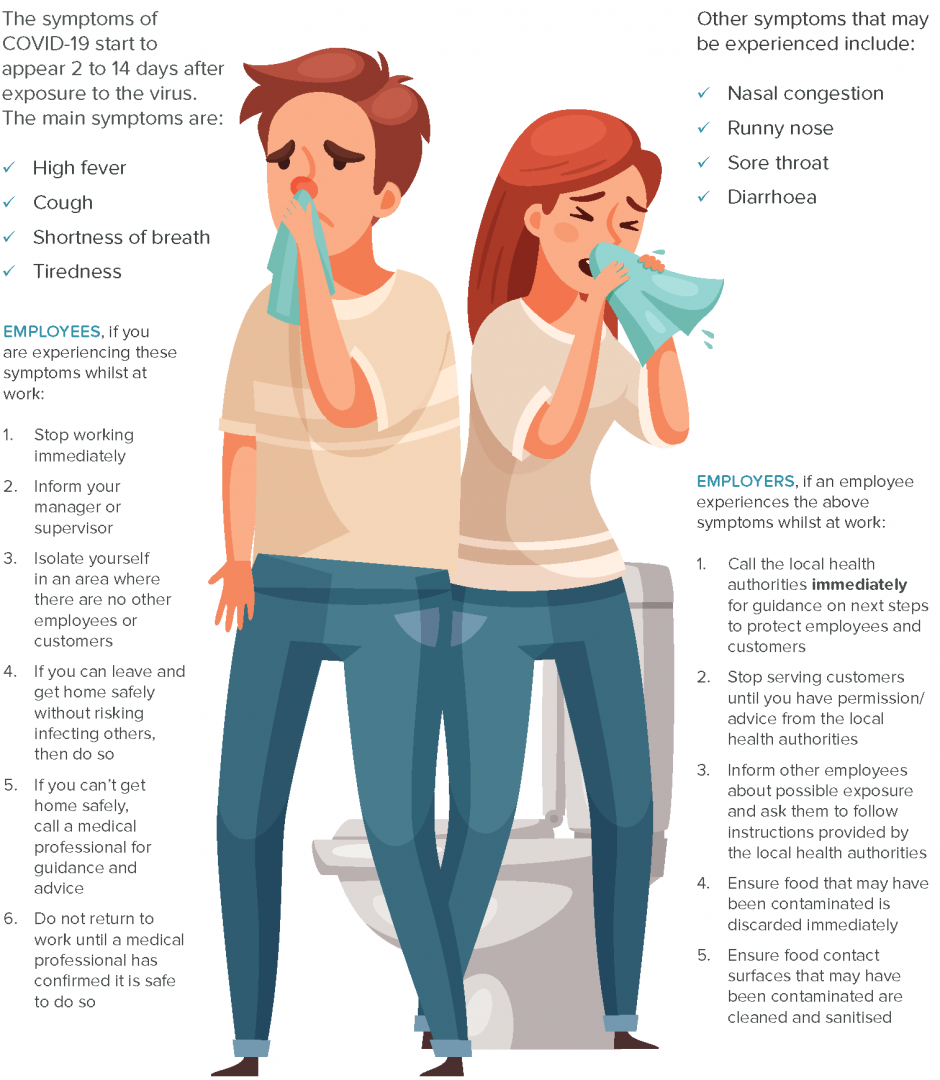
Should You Attend Work?
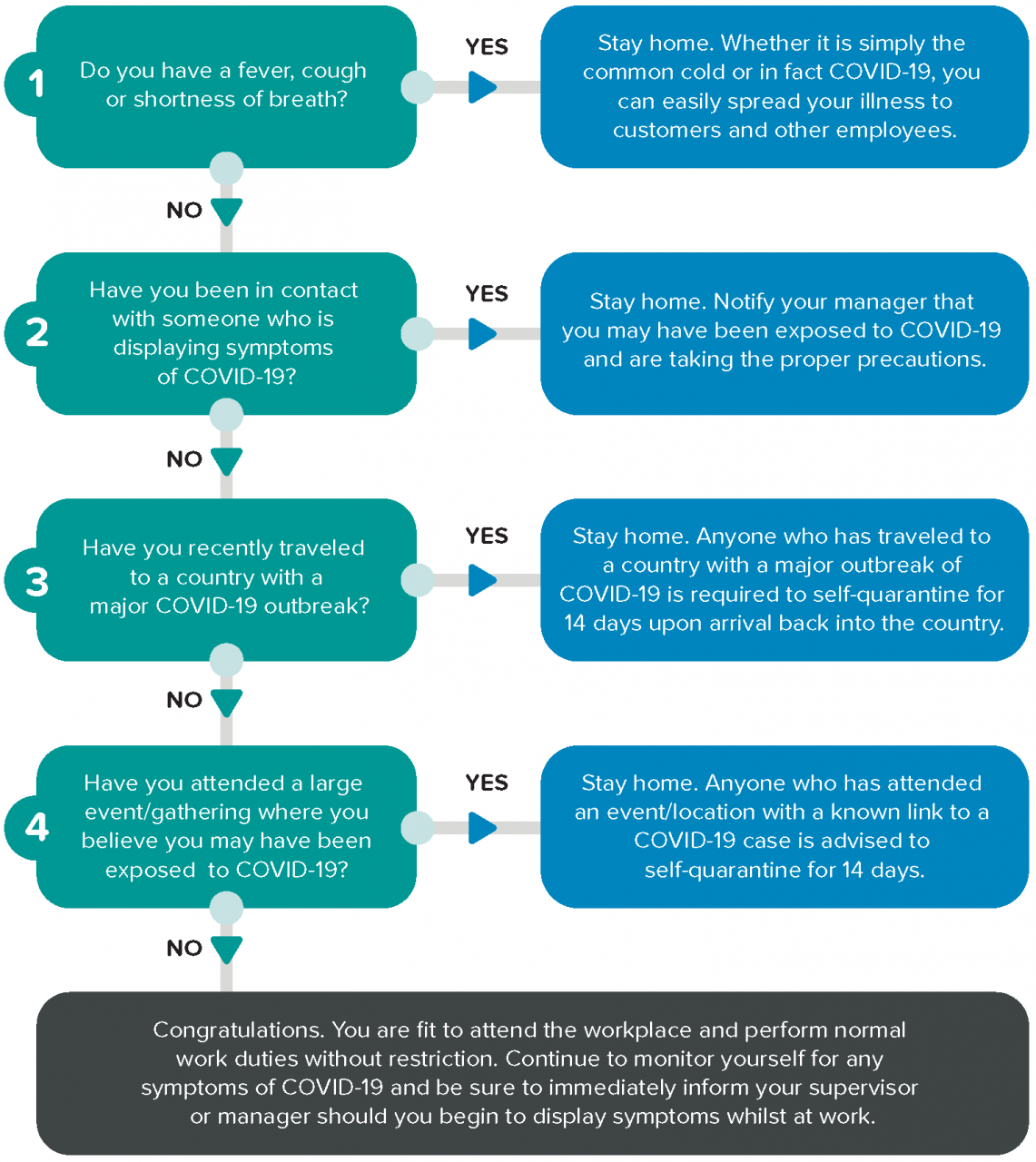
Suspected Case of COVID-19 at Work
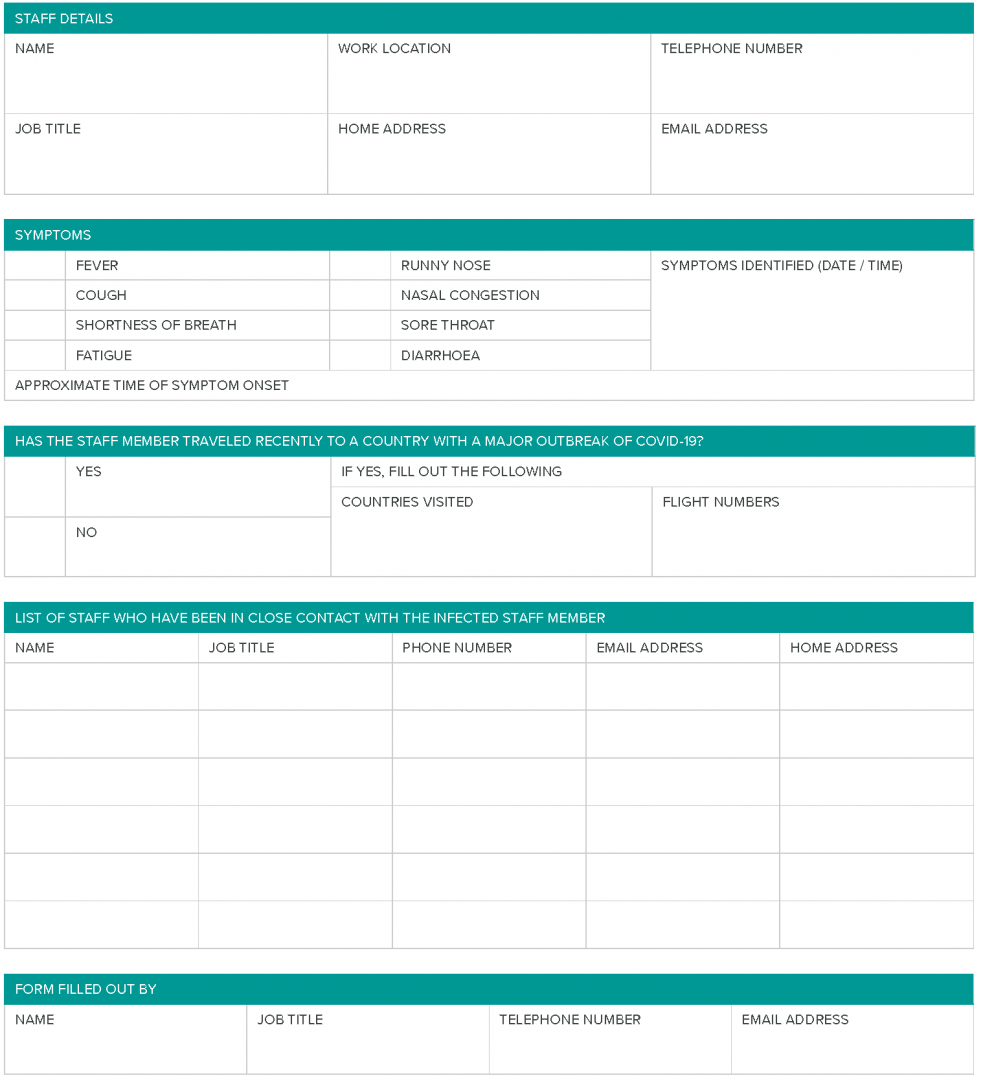
Correct Hand Washing Method
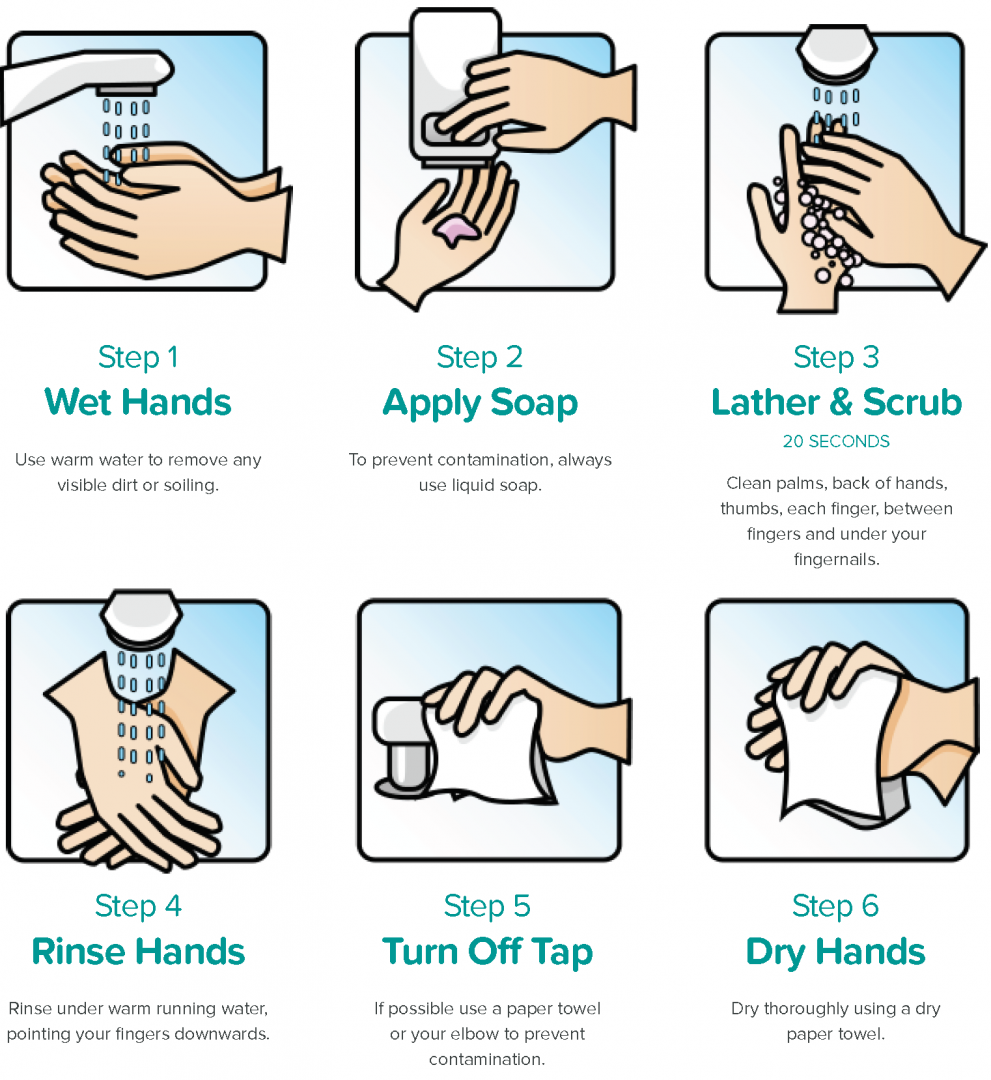
Stay Informed
Food business managers need to ensure they have the latest information and advice on COVID-19. As scientists around the world research the SARS-CoV-2 virus, more information is becoming available to help food businesses prepare food safely and protect their customers.
CONTACT THE AUTHORITIES
Your local food safety department will be staying up-to-date and informed on all the latest information about COVID-19. Get in touch and ask if there are any steps that they are recommending specifically to your local area.
If you don’t already have a contact in the food safety department, now is a good time to make a connection that you can reach out to if there is a suspected COVID-19 case on your premises.
Ask your food safety contact to keep you informed if there are any changes or new information that you need to know about.
SET UP YOUR INFORMATION SOURCES
There are many sources of information about the COVID-19 outbreak, some more reputable than others.
Find some high-quality sources that contain the type of information you need to run your business (local and state government websites are often best) and then bookmark them online and set a schedule to check them every 1-2 days.
Don’t put too much faith in the information being shared on social media and always consider whether the regular media is publishing a story to sell headlines, rather than to share information in a considerate way.
The Australian Institute of Food Safety will also be publishing regular updates and insights throughout the COVID-19 outbreak.











